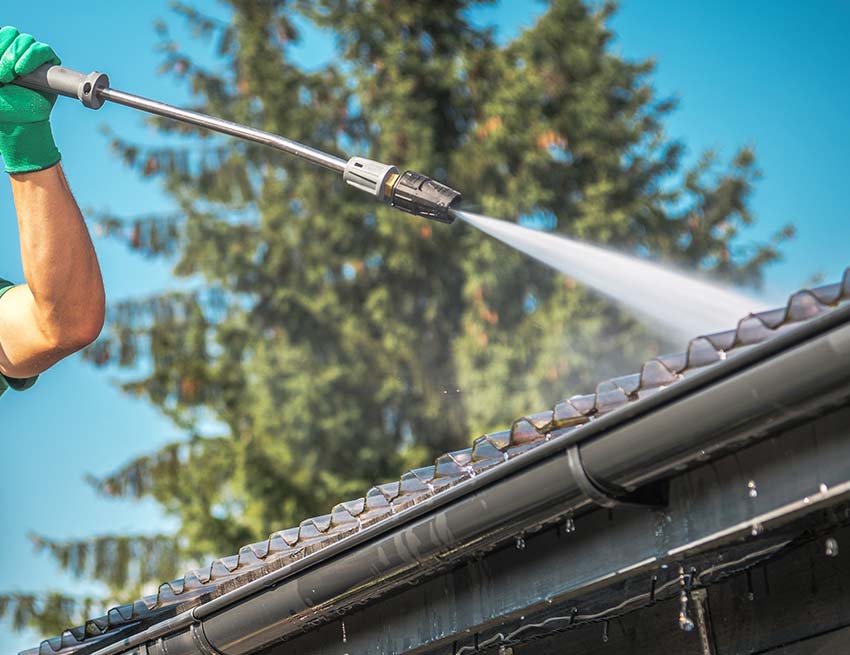Why does my gutter keep getting blocked?
If you’re a homeowner, you’ve likely encountered the frustration of dealing with clogged gutters. Gutter clogs occur when debris such as leaves, twigs, and dirt accumulate and obstruct the flow of rainwater.
To understand why gutters get blocked, we need to delve into the science behind it.
Gutters are designed to collect and channel rainwater away from your home’s foundation. They play a crucial role in preventing water damage to your property.
However, when debris accumulates in the gutters, it hinders the smooth flow of water, leading to clogs. Several factors contribute to gutter clogs:
Falling Leaves and Tree Debris:
During autumn, trees shed their leaves, and these leaves often end up in your gutters. Additionally, branches, twigs, and seeds from nearby trees can find their way into the gutter system.
Roof Granules:
Over time, asphalt shingles can shed tiny granules that end up in the gutters. These granules are meant to protect the shingles from the sun’s harmful UV rays but can become dislodged due to weathering or improper installation.
Nesting Materials and Animal Droppings:
Small animals, such as birds or rodents, may build nests or leave droppings in your gutters. These materials can contribute to clogs, causing water to pool rather than drain properly.
Wind-blown Debris:
High winds can carry various debris, including dust, pollen, and small branches, which may accumulate in your gutters.
DIY vs professional gutter cleaning services
When faced with a clogged gutter, you might wonder whether to tackle the issue yourself or hire a professional gutter cleaning service. Let’s explore the pros and cons of both options.
DIY Gutter Cleaning:
Pros:
Cost-saving:
Cleaning your gutters yourself eliminates the expense of hiring a professional.
Immediate action: You can address clogs promptly without waiting for an appointment.
Familiarity with your gutter system: As a homeowner, you are more likely to understand the nuances of your gutters and identify potential issues.
Cons:
Safety risks: Climbing ladders and working at heights can be dangerous, especially if you lack experience or appropriate safety equipment.
Time-consuming: Gutter cleaning can be a labor-intensive task, especially for larger homes or complex gutter systems.
Limited tools and expertise: DIY cleaning may not achieve the same level of thoroughness as professional services, leading to potential long-term issues.
Professional Gutter Cleaning Services:
Pros:
Expertise and experience: Professional cleaners have the necessary skills and knowledge to identify and resolve gutter-related problems effectively.
Safety precautions: Professionals are equipped with the right tools and safety gear to handle gutter cleaning tasks safely.
Time-saving: Hiring professionals for gutter cleaning services allows you to focus on other priorities while they efficiently clean your gutters.
Cons:
Cost: Professional gutter cleaning services come with a price tag, which may vary depending on the size and complexity of your gutter system.
Scheduling constraints: Depending on the service provider’s availability, you may need to wait for an appointment.
How can I improve my gutter flow?
To enhance the flow and prevent clogs in your gutters, consider implementing the following measures:
Regular Maintenance:
Regular gutter cleaning is crucial in preventing clogs. Plan a cleaning schedule based on the foliage and weather conditions in your area. It’s advisable to clean your gutters at least twice a year, ideally during spring and autumn.
Trim Overhanging Branches:
Trim branches that hang over or near your gutters to minimize the amount of debris that falls into them.
Install Gutter Guards:
Gutter guards are protective coverings that help keep debris out while allowing water to flow freely. They act as a barrier, preventing leaves and larger particles from entering the gutter system.
Downspout Extensions:
Consider adding downspout extensions to divert water further away from your home’s foundation. This helps prevent soil erosion and reduces the chances of water seeping into your basement or crawl space.
Professional Inspection:
Schedule periodic inspections by professional gutter cleaners or roofing experts. They can identify potential issues such as leaks, sagging gutters, or damaged downspouts, which may impede proper water flow.
In conclusion, understanding the science behind gutter clogs and the preventive measures you can take is essential for maintaining a properly functioning gutter system.
Whether you choose to clean your gutters yourself or hire a professional service, regular maintenance and prompt action are key to preventing clogs and protecting your home from potential water damage.

